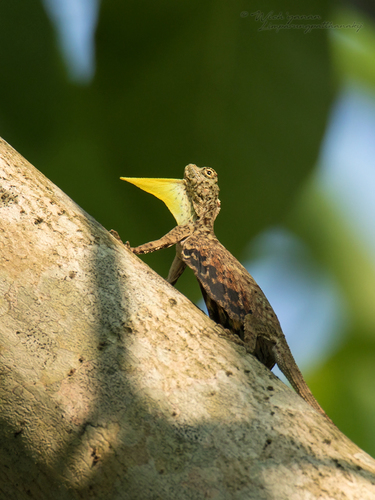
Common Flying Dragon
The flying dragon, Draco volans, glides gracefully between trees using its unique wing-like flaps. Found in Southeast Asia's lush forests, this arboreal lizard dazzles with its gliding prowess, feeding primarily on ants and termites. Its remarkable adaptation makes it a fascinating highlight of the forest canopy.
8 years
Lifespan
20.7 g
Weight
Length: 20 - 22 cm
Size
Yellow, Blue, Tan
Color
17 mph
Top Speed
Least Concern
Conservation Status
Unknown
Population Trend
Characteristics
Draco volans, commonly known as the flying dragon, is a small lizard species native to the forests of Southeast Asia. It is known for its ability to glide through the air using wing-like flaps of skin extended between its ribs. These lizards primarily feed on ants and termites and are arboreal, spending most of their life in trees.
Distribution Range of the Common Flying Dragon
Draco volans, commonly known as the Common Flying Dragon, is native to Southeast Asia. It is primarily found in the southern Philippines, Malaysia, Indonesia, and southern Thailand. The species is distributed across islands and mainland regions where tropical rainforest ecosystems are prevalent.
Common Flying Dragon's Habitat
Environmental Conditions
Draco volans inhabits tropical rainforests, which are characterized by high humidity, warm temperatures, and dense vegetation. These environments generally have a stable climate with minimal seasonal variation, providing a consistent ecological niche for the species.
Ecological Niche
The species is arboreal, living primarily in trees, where it uses its gliding ability to move between trunks and branches. Draco volans is adapted to life in the canopy layer of forests, relying on its ability to camouflage and glide to evade predators and hunt for insects. Its ecological role involves controlling insect populations and serving as prey for larger arboreal predators.
Copyright @ Nature Style Limited. All Rights Reserved.
 English
English